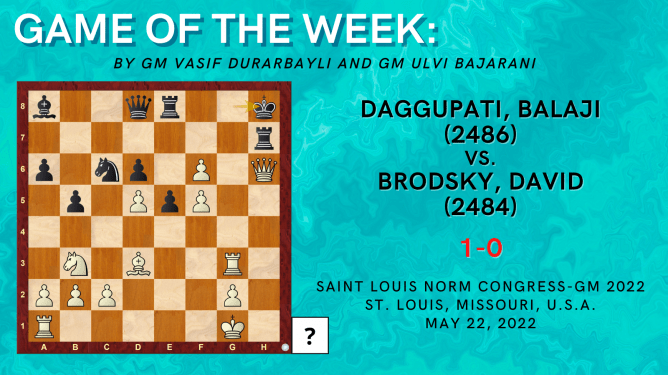Tag: Ulvi Bajarani
-
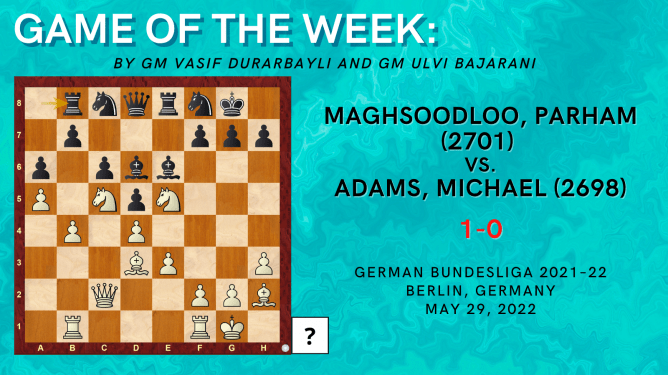
Game of the Week XXII: Maghsoodloo, Parham (2701) – Adams, Michael (2698)
“Why is the position getting worse with every move even though the opponent isn’t doing anything extraordinary?” Obviously, every position is unique; however, the most likely answer to this question, in general, is that your position is statically worse. Subsequently, a slow game plays into the hand of your opponent. The terms “static” and “dynamic”…
-
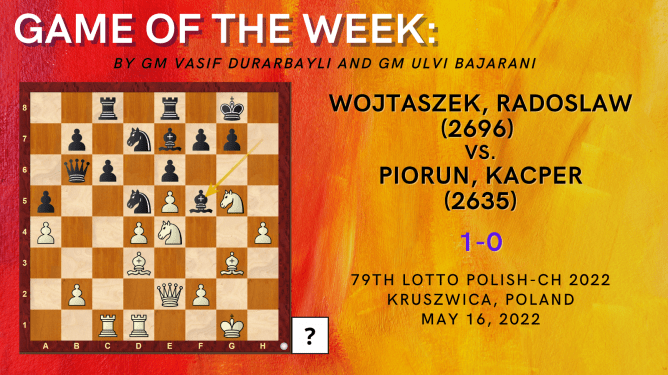
Game of the Week XX: Wojtaszek, Radoslaw (2696) – Piorun, Kacper (2635)
Why is the role of the center so important in chess? The main reason is that having control of the center allows the side controlling it to conduct its plan with ease. For example, a player’s attack on the opposing side’s king is more likely to be executed successfully when the center is solid, according…
-
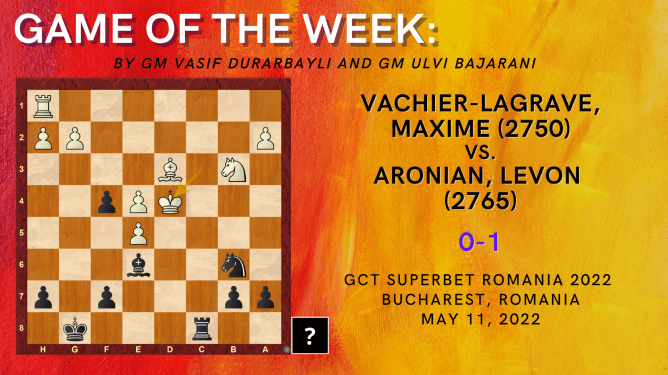
Game of the Week XIX: Vachier-Lagrave, Maxime (2750) – Aronian, Levon (2765)
“Centralization of the king in the endgame is hardly ever incorrect. It can only be inopportune.” – from Endgame Strategy by Shereshevsky Mating the king is the primary purpose of chess; therefore, each side usually tries to keep the king safe during the middle game where their opponent has various opportunities to attack him. However, after trading the…
-
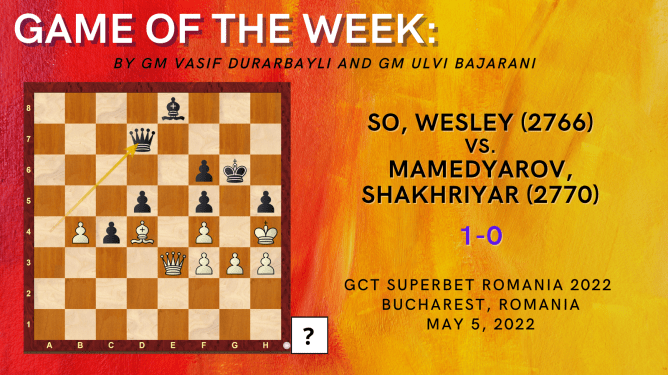
Game of the Week XVIII: So, Wesley (2766) – Mamedyarov, Shakhriyar (2770)
A ruined pawn structure around the king is a recipe for getting mated in the middle game. However, closer to the endgame, the chance of the weaker side being able to defend the king increases, which is why they usually offer trades to make the position more defensible. Nonetheless, sometimes the attacking side may also…
-
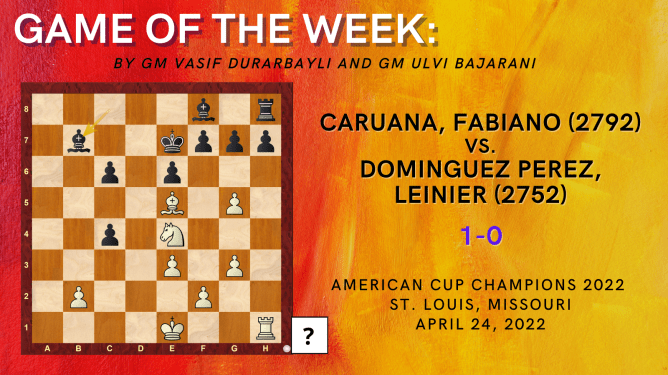
Game of the Week XVII: Caruana, Fabiano (2792) – Dominguez Perez, Leinier (2752)
During Chess.com’s coverage of the FIDE World Championship, Caruana said that he likes to go against the engine’s will in his opening preparation. Today, it is almost impossible to find any significant advantage in serious openings. Instead, the main goal of top GMs is to take their opponent out of their preparation. Caruana claims that…
-
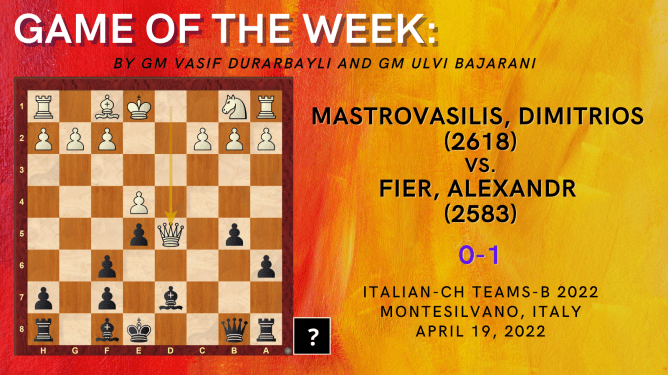
Game of the Week XVI: Mastrovasilis, Dimitrios (2618) – Fier, Alexandr (2583)
How do blunders happen in strong players’ games? Usually, strong players blunder when they encounter a surprise in some part of the game (for example, opening moves that they have not analyzed, moves that change the evaluation, etc.) that leads to uncomfortable positions for them. They spend a considerable amount of energy trying to calculate…
-
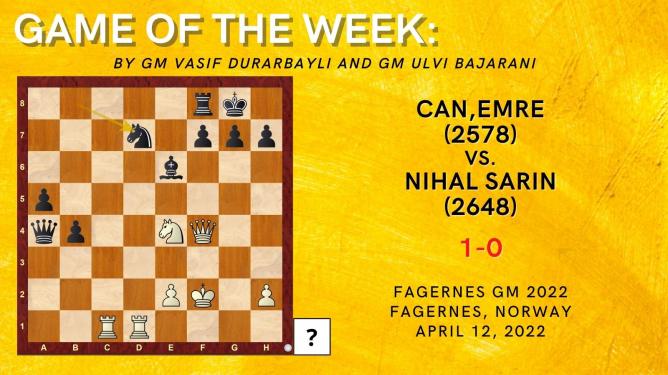
Game of the Week XV: Can, Emre (2578) – Nihal Sarin (2648)
When there is no light piece in front of the king, such as a knight on the 3rd or 6th rank, I call it a “lone king concern”. As you would guess, in these situations, the king becomes vulnerable, especially when enemy pieces are nearby. This is why many strong players often keep the knight…
-
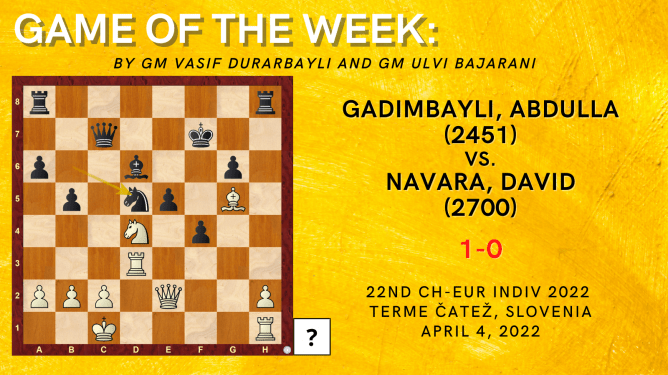
Game of the Week XIV: Gadimbayli, Abdulla (2451) – Navara, David (2700)
What happens when a player is “on fire”? This phenomenon is observed in chess tournaments from time to time when a player exhibits much higher performance than his rating would predict. In such cases, it seems that all of the elements – good form, luck, and the opponents’ underestimation – come together to create something…
-
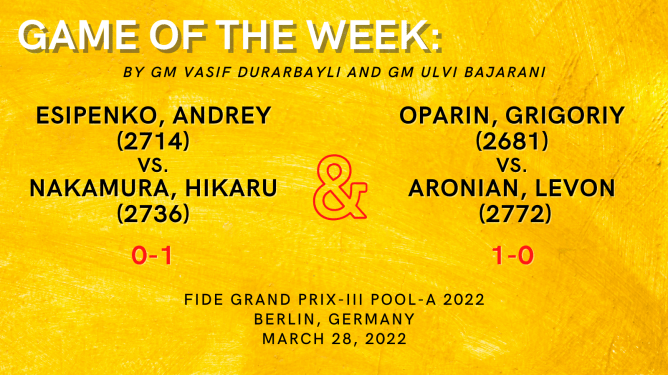
Game of the Week XIII
The following question frequently arises in practice: How can I create winning chances if I’m playing with Black? The question above is very difficult to answer because there are several possible variations depending on the opponent, and a solution that would work in one situation might not work in another. There are three possible solutions…
-
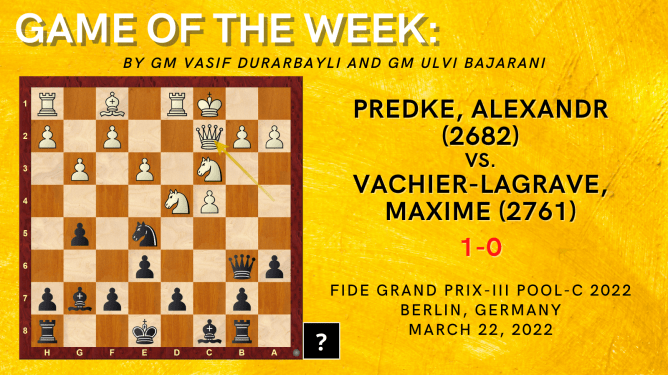
Game of the Week XII: Predke, Alexandr (2682) – Vachier-Lagrave, Maxime (2761)
All chess players encounter situations where it is necessary to effectively respond to their opponents’ moves and ideas. Preventing them or preparing against them is known as prophylaxis (from Ancient Greek: πρό (pró = before) + φύλαξις (phúlaxis = a watching, guarding). There are two types of prophylaxis in chess, which might be translated into…
-
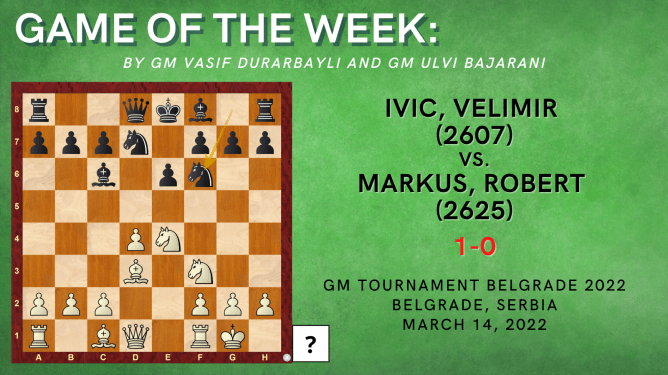
Game of the Week XI: Ivic, Velimir (2607) – Markus, Robert (2625)
There are several types of advantages in chess. After the material advantage, the easiest one to recognize is probably the space advantage, where a player controls considerably more squares than their opponent. It is common knowledge that the side with a space advantage should avoid trading pieces because the side with a space disadvantage has…
